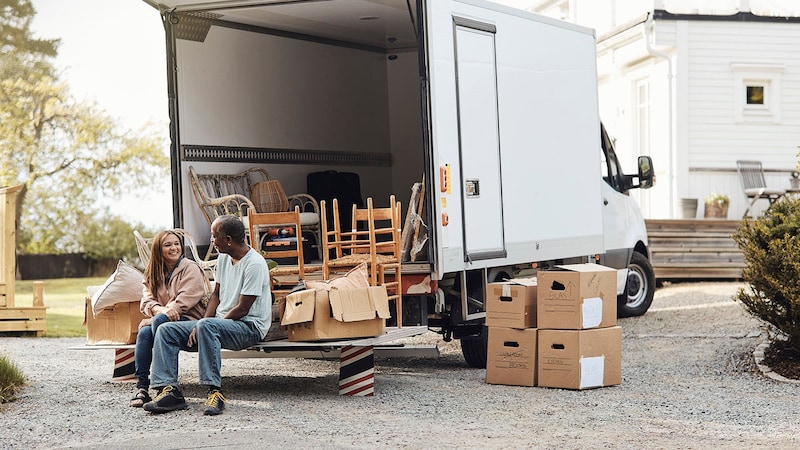Buying a house with cash: The pros, cons and considerations

Quick insights
- Buying a house with cash can provide immediate homeownership, save on interest and situate you well in a competitive market.
- There are potential downsides to using significant capital at once, including reduced financial flexibility and less available cash to invest.
- When purchasing a house with cash, it’s important to verify the appraised price, confirm there are no outstanding liens and conduct a professional inspection.
Given how common it is to finance a home purchase with a mortgage, you might assume it’s required. However, with enough cash, a buyer may be able to skip the financing process. There are advantages to buying a home with cash, including saving money on interest. However, there may be drawbacks when using such a large sum of money at once.
Can you buy a house with cash?
Yes, it’s possible to buy a house with cash if you have the funds available. Buying a house with cash is one way to become a homeowner without taking out a traditional mortgage. In a competitive housing market, a cash offer can be appealing to sellers. However, there are certain drawbacks to consider when leveraging cash for property.
Pros of paying cash for a house
To begin, let’s examine some reasons a homebuyer might prefer to pay with cash. Some of the advantages of buying a house with cash include:
- Immediate ownership: Paying cash for a home results in immediate ownership after the deal closes. When financing with a mortgage, the lender has a lien on the property until the loan is paid in full. The homeowner, strictly speaking, wouldn’t own the property while there is an outstanding lien.
- No interest: When buying a home with a mortgage, interest is built into the loan schedule and paid with each installment. A cash transaction doesn’t require a mortgage loan, so interest isn’t charged. Therefore, those who use a mortgage typically end up paying more for a home compared to those who buy with cash.
- Stronger buyer position: Sellers may choose a cash offer over a financed deal because of the speed and assurance. Even with preapproval on a mortgage, when buyers have an issue while the sale is pending, the settlement could be delayed (or terminated).
- Simplified closing process: Without the need for mortgage approval, the closing process can be quicker and less complicated.
- Potential for negotiation: Sellers may be more willing to negotiate on price with a cash buyer due to the certainty and speed of the transaction.
Cons of paying cash for a house
Although there are compelling reasons to buy a house with cash, spending personal capital can have downsides. Potential considerations include:
- Less financial flexibility: Depending on your circumstances, paying cash for a home could mean depleting your savings. This can limit financial options when making decisions down the road. In particular, emergency savings can be especially helpful when taking on the new responsibilities of being a homeowner.
- Lost opportunity cost: From one perspective, using cash to pay for real estate in full could limit other investment opportunities. For example, retirement savings, the stock market, a new business or a higher education degree.
What to consider when making a cash offer
After weighing the pros and cons, consider doing some more due diligence before buying a house with cash. As with a mortgage-backed offer, there’s no “return policy” when it comes to homebuying. To help ensure a sound deal before money exchanges hands, you may want to:
- Schedule a home inspection: Instead of (or in addition to) an owner’s inspection, you may want to schedule a professional home inspection of your own. This can help uncover potential problems which may be missed in the initial assessment of the home.
- Compare with an appraiser: Having a professional appraiser visit the home can help you feel more confident about the listing price. If the appraiser finds that the home has been overvalued, this might affect negotiations of the cash offer.
- Check for existing liens: Checking for liens or other disputes relating to the title is important when buying a house with cash. Liens take priority over other monetary transactions, which would threaten the cash sale of the house.
- Consider a hybrid approach: To balance the advantages and drawbacks of making a cash offer, you may want to consider a hybrid approach. With enough cash on hand, you may be able to make a larger down payment and finance the rest. For example, you could make a 50% down payment, with a smaller mortgage to cover the remaining price of the home. This could provide some benefits of paying in full, such as a shorter path to ownership, with less of an upfront demand.
How to buy a house with cash
If you’re interested in paying for a house entirely with cash, here’s how the process can generally work:
- Assess your finances: Consider your personal wealth in comparison to the home’s listing price. If the purchase would not significantly limit your financial flexibility or stability, buying a house with cash may be a solid option.
- Conduct property research: Find a property that suits your needs and price range. Communicate with the owner regarding inspections and necessary repairs.
- Make the offer: Prepare a competitive cash offer based on an analysis of the market and the home’s appraised value.
- Schedule a home inspection: Arrange for a professional inspection to uncover any potential issues with the property.
- Verify the appraised value: Ensure the property's appraised value aligns with the purchase price to avoid overpaying.
- Check for existing liens: Perform a title search to confirm there are no liens or disputes that could affect the purchase.
- Close the transaction: When you are satisfied with the results of inspections, lien searches and the home’s appraised value, the funds can be transferred to the owner.
Keep in mind, “buying a house with cash” doesn’t mean you need to show up on closing day with a suitcase full of money. In a real estate sale, cash is more commonly exchanged with a wire transfer or a cashier’s check.
In conclusion
If you have significant personal capital, it may be beneficial to buy a house with cash. As with any home purchase, due diligence is important to help ensure a fair price and sound financial decision. To explore home financing options, consider getting in touch with an experienced Home Lending Advisor.



